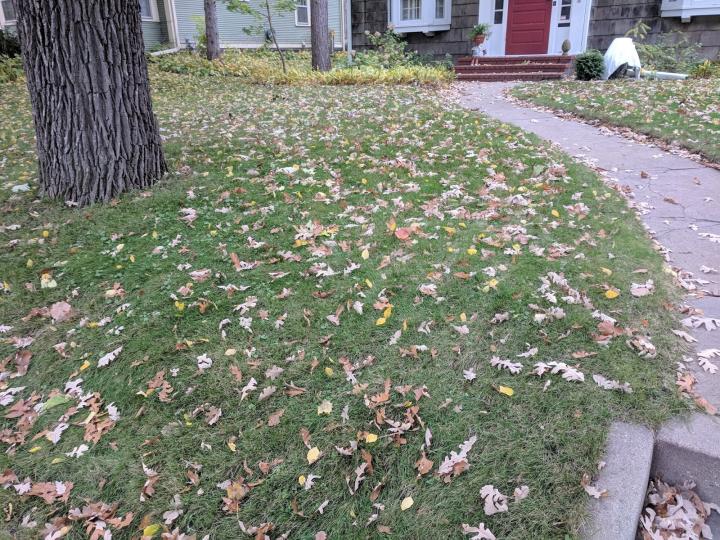Once decomposed, they provide nutrients for the grass and food for the earthworms, which are in turn, eaten by birds. This is not my lawn.
Leaves do make good compost. However, winter brings rains and rains mats leaves together (especially in shady areas). So if leaves are left on a lawn ...
...they can block light from reaching the grass. Like any other plant, grass needs light to survive. If leaves are left on too long, the grass will turn yellow and eventually die. Any tufts that can find light will survive, but you'll have a patchy lawn come spring.
... they can smother the lawn. Plants need air to survive just like we do. Leaves, especially wet ones, act like a blanket, smothering the grass beneath them.
... they can attract bugs. These bugs can attract bigger pests (and I don't mean just the homeowners association). They can attract gophers and moles.
... they allow molds and fungi to develop. While some of these are beneficial (they're helping to break down the leaves), some can kill the grass, or spread to places you don't want them (rose bushes, flower gardens, etc.).
... they can be dangerous. Wet leaves are slippery - even on grass. Someone can walk on them and slip. If it's you, it's very "inconvenient". But if it's someone else, you may be held responsible for their medical bills (which could result in the raise of the cost of your homeowners insurance).
So not removing leaves from a lawn could result in spending more money in the long run.
While small trees probably won't produce enough leaves to worry about, large trees can. If you have an oak nearby, the leaves will incubate the acorns, and come spring you'll have a bunch of tiny oak trees in your lawn (and although they only have 1 root they're hard to pull out).
Oh, and raking a lawn helps to dethatch it. Blowing doesn't.